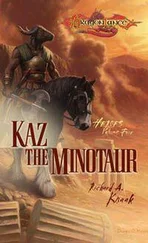‘Do you mean you're moving out?’
‘That's what I mean, Ida, yes. Some time after Christmas. After John's appointment with the specialist. Are you still getting married in January, Winifred?’
‘Of course I am!’
‘No of course about it. You were going to get married in November but you didn't.’
I asked myself if Zorah could possibly know about Felix. Surely not. How could she?
‘You will do very well out of my going, Mother,’ she said. ‘You'll get my rooms and another bathroom all beautifully decorated. What more do you want?’
They were all thinking, all of them but John, that with Zorah's departure the gifts would go too, the wine, the food, the cash presents. I could read Ella's thought that thank God she had already got the car out of her.
‘I may have Christmas here with you all. I haven't decided yet. In any case you can take it I'll provide the turkey and the booze.’
In the drawing room next morning, I went over to the console table and laid my hands on the Roman vase. It was the first time I had ever touched it. I ran my fingers over its surface, feeling its smoothness which at the same time was faintly dimpled. It was cool but not cold to the touch, jade-coloured but not opaque as jade is, reflecting light but not images from its rounded surface. A strange and unlikely urge to possess it made me lift it up with extreme care, but I put it down almost at once, unwilling to be found handling it by a Cosway.
I had no idea then and have none now as to its value. Did it in fact even belong to the Cosways? Some ancestor of theirs had found it buried in the grounds, miraculously intact. Waste dumps have always been rich sources of treasure because householders tend to throw away their rubbish on the same site as that used by the generation immediately before them, while that previous generation favours the site used by his forebears and so on back for centuries. So it is quite possible that excavating a Victorian rubbish heap may lead you on down and down to Tudor and even medieval detritus. I have never heard of Roman remains being found under later waste repositories but I suppose it is possible. This, at any rate, was what Ida told me was the burial place of the Roman vase, long since become the neglected orchard.
It was not quite intact, there being a tiny chip out of its base. Perhaps this was the reason for its being thrown away, though ‘thrown’ was hardly the word as, again according to Ida, it had been found encased in a great earthenware jar. What became of the jar I have no idea.
Apart from the house itself, the Roman vase was the only inanimate thing I drew in the diary. I tried to draw it from memory but found, sitting in my bedroom, that I had forgotten the precise configuration of its mouth and the twist pattern of its handle. Everyone had gone to bed except John, who was in the library and likely to stay there for hours. I went downstairs to imprint on my mind those details of the vase.
The harp glowed dimly in the darkened hall. A faint light showed under the double doors to the library. I imagined John in there, sitting on the floor, I supposed, with his back resting against Longinus's plinth, surrounded by tumbled books, amidst dim light and deep shadows, and I felt happy for him. The house was as silent as only houses which stand alone in countryside can be by night. I studied the vase, its shape, its texture, the sugarstick twist of its curved handle. No one came in, though I was afraid all the time that they would, and ask what I was doing there.
Switching off the lights, I went upstairs again, treading softly. Before I went to bed I drew the vase in the diary and was quite pleased with the result. The fears I had experienced downstairs, creeping on tiptoe, afraid to turn on lights, made me marvel at myself. I who had used to be determined, robust and cheerful was gradually becoming – as I saw it – mouse-like and diffident. It was Mrs Cosway who was grinding me down, changing me into the submissive creature she would probably have liked me to be when I first arrived.
Why did I draw the vase when it never crossed my mind to draw the geode or the hall fireplace or the harp or the library itself? Why draw the vase and not the mulberry tree or the boat floating on the pond or Ella's room with the frills and the dolls? Why not the orchard with its withered trees or the piano in John's gloomy bedroom? I flatter myself if I say it was because of my foresight and because I knew its long ancient life was not to last much longer. I had no such reason. I drew it only because it was the most beautiful thing in Lydstep Old Hall.
21
In the first half of December I had two proposals. They were the only proposals I ever had, for I have no memory of my husband ever asking me to marry him. We just knew that one day we should be married because it seemed the logical next step in our shared life.
Mark was the first to ask me. I was in London for the weekend and we had been talking about my vacillations over whether to leave Lydstep or to stay. I knew I shouldn't burden poor Mark with all this but I suppose I had no one else on whom to unload my troubles and usually, as soon as I arrived, although I tried not to, I would begin on a catalogue of Cosway horrors and my own general feelings of uselessness. Mostly, he had no solution to offer. He would only tell me to put up with it a little longer, to stay until after Winifred's wedding, or else, probably exasperated, would say there were only two choices before me. If I disliked it so much I might as well leave now.
‘I meant to stay a year,’ I said. ‘At least, I meant to stay till you go to America.’
Mark was committed to a postgraduate course at a university in New Hampshire and intended to go there in August for two years. We had known that from the beginning and accepted it. Once he had gone we might never see each other again. No doubt we would correspond but we would regard ourselves as free and not in any way committed. It seemed that he was beginning to see things differently.
‘You could leave and still stay in this country,’ he said.
I said I couldn't afford it. I might find other work but I had nowhere to live.
‘Move in with me.’
I said nothing. I looked at him and he took my hand.
‘Move in with me and come with me when I go to America.’
These arrangements, recognized relationships, as they might be called, were far from being accepted then. The United States, I felt and said, would have been still less likely to tolerate a graduate student living on campus with his girlfriend, even if this were possible.
‘You could marry me,’ he said, and seeing my shocked face, ‘that was brutal of me, I shouldn't have put it like that. I should say, will you marry me, Kerstin? I should like it very much.’
I didn't want to be married but nothing would have made me put it in those words. For some reason, saying no upset me terribly. I don't think I actually did say it. I shook my head, muttered something like, ‘I can't, I can't,’ and began to cry. He held me and I cried against his chest, making his sweater all wet. That was the first and only time he ever saw me in tears and I had to tell him truthfully that I didn't know why I was crying. Perhaps it had something to do with thinking it a great honour to be proposed to by this nice, kind, good-looking and clever man whom I liked so much but didn't love at all, and knowing that marrying him would make us both unhappy for maybe the rest of our lives.
The weekend was spoiled, as I sensed it might be when my tears started. And the rest of our weekends were spoiled too, for Mark, who had never previously been in love with me, now fell in as into a fast-flowing river which carried him helplessly along. Once the idea of marriage had come to him, he couldn't let it go and his unhappiness and frustration began the following day. He who had been so light-hearted and funny and interested in everything grew silent and miserable. I left him sadly, feeling wretched in his company in a way I never had before. Instead of keeping to our old arrangement of my phoning him once or twice in the next couple of weeks to say when I would next be in London, he promised as if I had asked for this, that he would ring me every day.
Читать дальше












